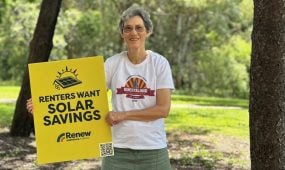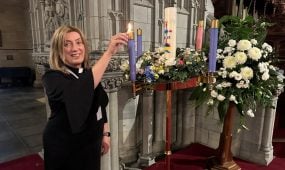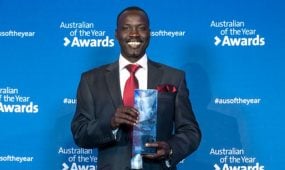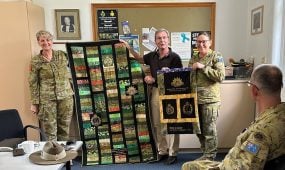Q&A with new Diocesan DFV Project Officer, mother and active Brisbane community member, Jenny Clark
Spotlight Q&A
Meet Jenny Clark and find out about her 2023 work goals, her favourite scripture, what she does in her free time, what she would write on a billboard and her thoughts on the Voice to Parliament
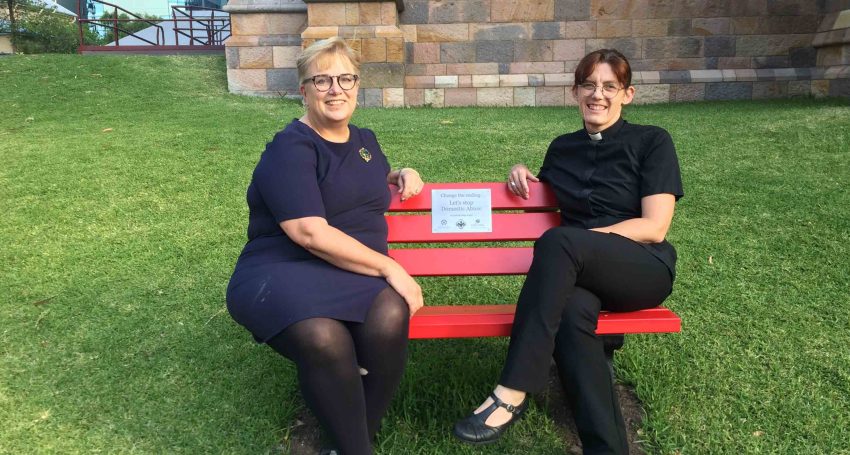
Congratulations on your appointment as the new Project Officer – Domestic and Family Violence. What does your new role involve?
This is a new role that is focused on the 2023 roll out of the Ten Commitments For Prevention and Response To Domestic and Family Violence in the Anglican Church of Australia. The Ten Commitments were informed by the findings of the first known Australian Church study into the prevalence of intimate partner violence (IPV) within the Anglican faith community.
One of the findings of this study is that IPV among Anglicans is the same or higher than in the wider Australian community. Out of this study and other findings emerged the Ten Commitments, which call us all to look deeply at this issue and give life to strategies that will identify, respond and prevent domestic and family violence (DFV) in all its forms.
Advertisement
The Ten Commitments challenge the Church to start within its own communities, including parishes, schools, workplaces and Church agencies, rather than viewing DVF as something that only happens “out there”. A good place to start is increasing awareness of the forms DVF takes and how it might be identified and responded to. We are challenged to look beyond helping “victims” to understanding how violence is used and how, as a large institution, we can best respond.
What are your goals for the next 12 months?
Firstly, to support the ACSQ’s Domestic and Family Violence Working Group, including its Chair, The Rev’d Gillian Moses. Secondly, to help implement the Ten Commitments, while supporting initiatives in parishes and Church agencies. And finally, to keep up to date with changes in domestic and family violence policy, programs and legislation.
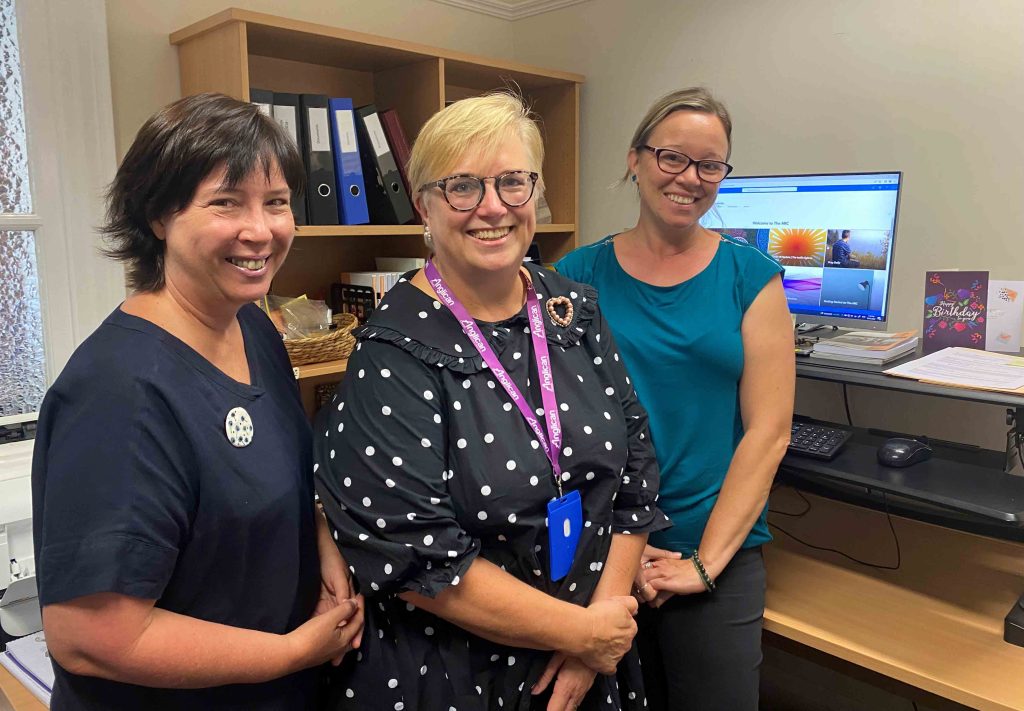
Jenny, Lisa and Claudine from the General Manager’s Office at St Martin’s House in January 2023
What is your favourite scripture and why?
I don’t really have a favourite, but I often go back to Matthew 25.31-46 – the Parable of the Sheep and the Goats, which challenges us deeply to find Christ in every single human, and not just in people we like or who like us.
What person of faith inspires you the most and why?
I don’t really have one person that I would put on a pedestal, and I often think that many of our great faith leaders of the past would probably have been quite challenging in everyday life. Two people I would nominate in Australia are our first Catholic Saint, Mary MacKillop, and a much less well-known local woman Elizabeth Brentnall, who was a Methodist suffragist who lived in Brisbane. Both women left a strong legacy of faith in action.
What are the primary strengths of the Church and what is the best way to make the most of these for the benefit of our communities?
In terms of my role, the strengths of the Church include:
- The size and breadth of the community at every level, from parishes to schools to community and aged care services and to the many smaller Church agencies.
- The diversity of the community, especially in terms of geography and people.
The trailblazing Australian Anglican response to domestic and family violence (including the Ten Commitments) and the dedication to shine a light on domestic and family violence within the Anglican community before expanding outward to the broader community.
Why is the Uluru Statement From the Heart, including the Voice to Parliament, so important?
I think we are running the risk of the Uluru Statement becoming the most discussed, debated and argued, yet least read document in Australian history, which is surprising, especially given that the Statement is less than 450 words long.
The statement is such a beautiful and generous gift to all Australians that it should, and hopefully will, eventually be revered like the Declaration of Independence is in the US.
The change proposed is to enshrine an ongoing Aboriginal and Torres Strait Islander Voice in the Constitution and that legislated details will follow with the “decision to defer”. The decision to defer detail is common with Constitutional changes – it is how the High Court of Australia was established, for example – and ensures that the legislated detail can be amended when needed over time.
What is the kindest gesture you have ever received or witnessed?
I have been a Director of The Lady Musgrave Trust for the last few years. The Trust is Queensland’s oldest charity focused on supporting young homeless women. The Trust receives no recurrent Government funding and relies mostly on fundraising and philanthropic funding. I have been amazed at the generosity of people touched by the stories of the individual women we assist.
Recently one tenant, who arrived with a suitcase, was gifted quality furniture by a corporate donor to set up a home for herself and her very young son. The impact of this far exceeded the material value of the furniture.
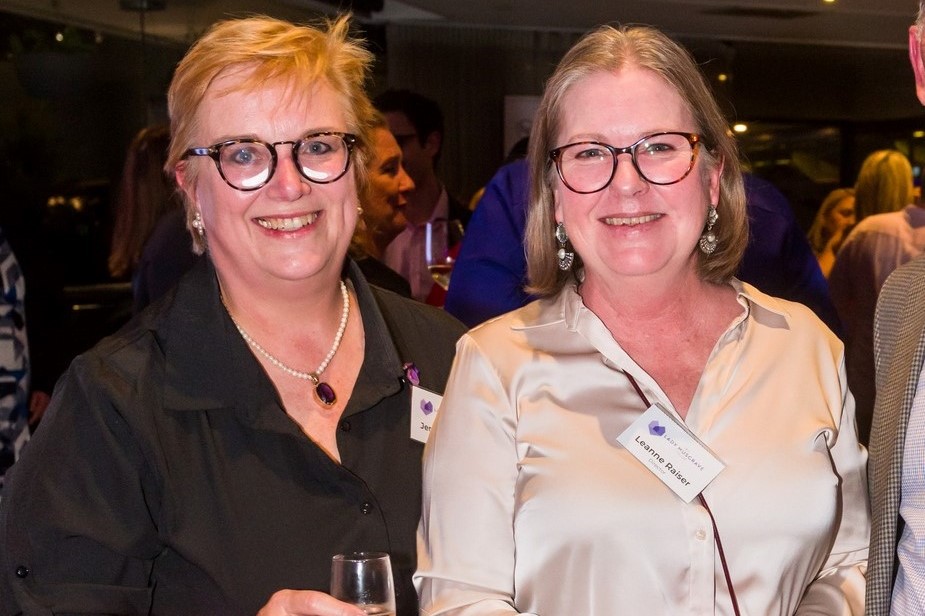
Jenny Clark and fellow Lady Musgrave Trust board member Leanne Raiser working hard in 2022 at the annual fundraising cocktail event
What is the best piece of advice you have ever received and who gave you this advice?
“People rise to the occasion”, which came from a great boss whom I was fortunate enough to work with.
If you found yourself on a deserted island, what three things would you choose to have with you?
A needle, a fishing rod and a machete.
What book have you given away most as a gift and why?
Tom Petrie’s Reminiscences of Early Queensland. Tom was six when his father Andrew took up the role of Government Surveyor in 1837. Brisbane was still a penal settlement. Tom was educated by a convict clerk and mixed freely with Aboriginal children learning local dialects and being included in local ceremonies. In 1904 his daughter, Constance, wrote down his reminiscences and today, nearly 120 years later, it makes fascinating, sad and insightful reading.
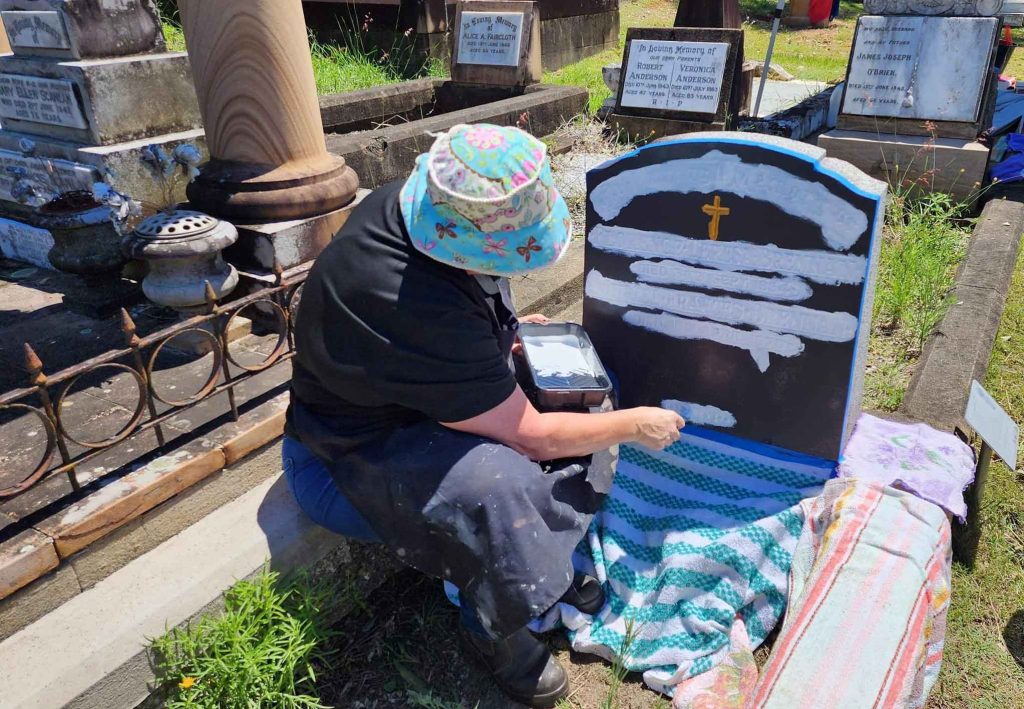
As an active Brisbane community member, Jenny Clark engages in restoration projects at Balmoral Cemetery
If you could have a billboard with any text on it, what would it say and why?
“Base your happiness on your hope in Christ. When trials come endure them patiently, steadfastly maintain the habit of prayer” (Romans 12.12 – JB Phillips New Testament). I especially like the way this passage acknowledges that joy and sorrow are both part of our human existence and that prayer can help us embrace both.
What is your karaoke go-to song?
‘Ringer from the Top End’ by Slim Dusty – with my son who many years ago, aged four, sung this all the way across the Nullarbor.
What do you do in your free time to recharge and relax?
I love the Balmoral Cemetery here in Brisbane and am active in the Friends Group there. It’s a beautiful and relaxing place.
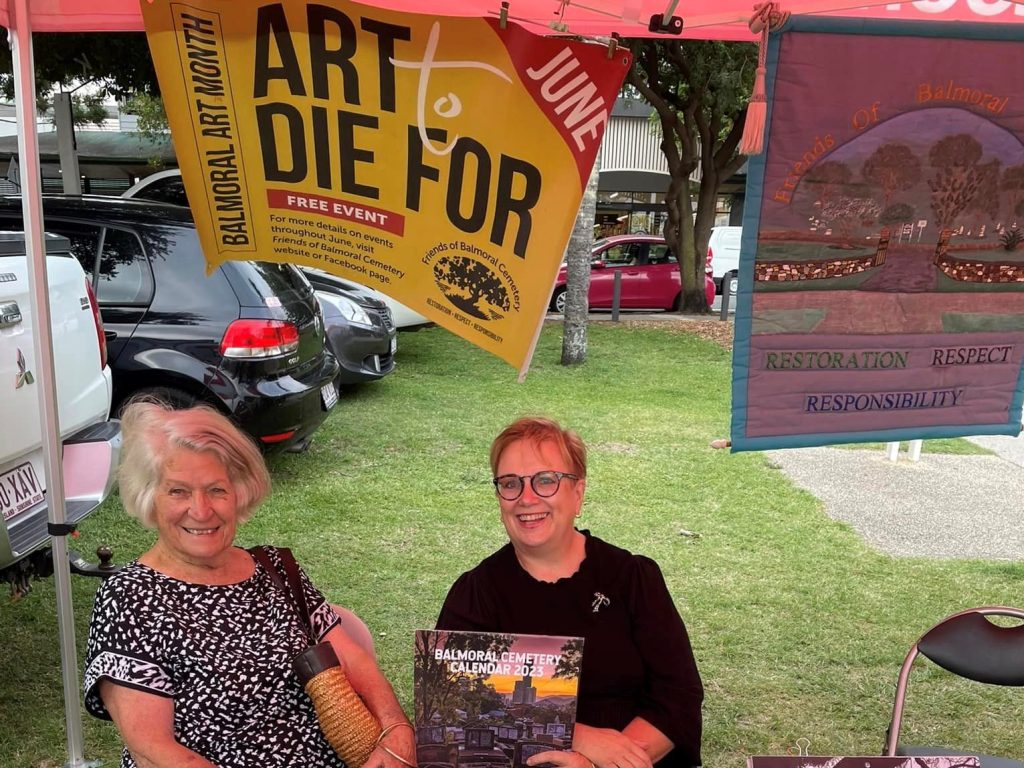
Jenny and fellow member of Friends of Balmoral Cemetery in 2022
If you are having a bad day, what do you do to cheer yourself up?
Go for a swim.
What is your secret skill?
Making scones and pikelets.
What’s your unanswerable question – the question you are always asking yourself?
Where do all the teaspoons go?
Note from The Rev’d Gillian Moses, Chair the ACSQ Domestic and Family Violence Working Group: The Anglican Church Southern Queensland (ACSQ) is committed to promoting and supporting a safe environment for all. Domestic and family violence is unacceptable. We offer pastoral care to victims of domestic and family abuse. The ACSQ is part of the Queensland Churches Together Joint Churches Domestic Violence Prevention Project (JCDVPP), which publishes resources for clergy and lay people.
If you are in immediate danger, call 000 for police or ambulance help. For a list of helplines and websites available to women, children and men, visit this page on the Queensland Government website.

